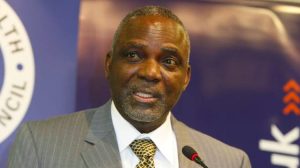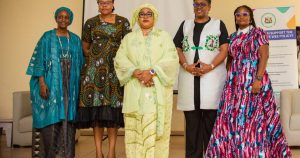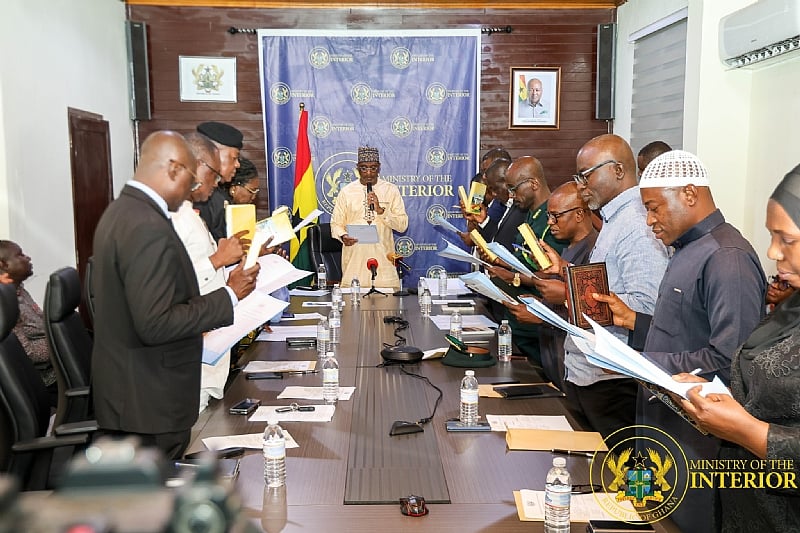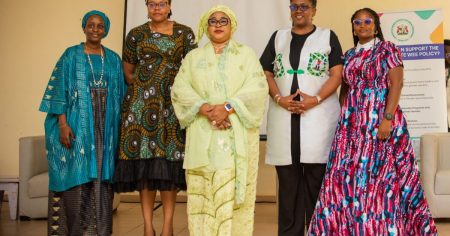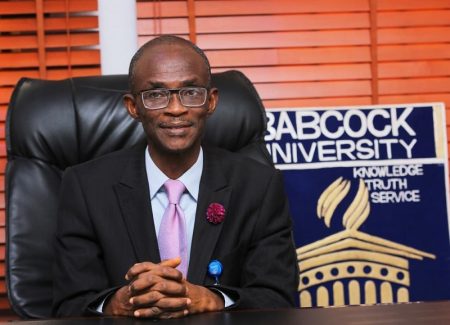The inauguration of the Ghana Refugee Board (GRB) Governing Board marks a significant step in Ghana’s commitment to upholding the rights and dignity of refugees seeking asylum within its borders. Minister for the Interior, Mr. Muntaka Mohammed-Mubarak, underscored the crucial role of the Board in managing the affairs of over 20,000 registered refugees from nearly 40 countries, a population that has grown significantly with the influx of individuals fleeing conflict in neighboring Burkina Faso. His charge to the Board emphasized prioritizing the welfare and dignity of these vulnerable individuals, ensuring they receive the necessary protection and support to rebuild their lives. The Minister’s call for unity, transparency, accountability, professionalism, and patriotism within the Board highlights the importance of a cohesive and ethical approach to refugee management. He pledged the government’s unwavering support in facilitating the Board’s work, expressing confidence in their ability to inject renewed energy and strategic direction into this vital area.
The Board’s mandate encompasses a wide range of responsibilities, from ensuring the basic needs of refugees are met to fostering their integration into Ghanaian society. This includes providing access to essential services such as shelter, food, healthcare, and education, as well as facilitating opportunities for livelihood development and self-reliance. The Board also plays a crucial role in collaborating with international organizations and NGOs to coordinate humanitarian assistance and ensure the effective implementation of refugee protection frameworks. Furthermore, the Board is tasked with upholding Ghana’s international obligations under the 1951 Refugee Convention and its 1967 Protocol, which define the legal status of refugees and outline the responsibilities of signatory states in providing protection and assistance.
Mr. Joseph Azumah, the newly appointed Chairman of the Board, expressed gratitude for the opportunity to serve and affirmed the Board’s dedication to promoting the welfare of refugees in Ghana. His commitment to diligent collaboration with all stakeholders, including government agencies, international organizations, and local communities, underscores the importance of a multi-sectoral approach to refugee management. This collaborative spirit is essential for addressing the complex challenges associated with refugee integration, including language barriers, cultural differences, and the potential strain on local resources. The Board’s success will hinge on its ability to forge strong partnerships and build bridges between refugee communities and host communities, fostering mutual understanding and respect.
The GRB’s work extends beyond providing immediate relief and encompasses long-term strategies for empowering refugees and enabling them to contribute meaningfully to their new communities. This involves promoting access to education and vocational training, creating opportunities for entrepreneurship and employment, and facilitating their participation in civic life. By investing in the human capital of refugees, the Board can help them transition from dependence to self-sufficiency and become active participants in Ghana’s social and economic development. This approach also benefits host communities by enriching the cultural fabric of society and fostering economic growth.
The Board faces a complex and evolving landscape in refugee management, particularly given the increasing number of refugees seeking asylum due to conflicts and instability in the region. This requires a proactive and adaptable approach, constantly assessing the changing needs of refugees and adjusting strategies accordingly. The Board must also be prepared to address emerging challenges, such as the potential for social tensions between host communities and refugee populations, the risk of exploitation and trafficking, and the need to ensure the sustainable provision of resources and services. Effectively navigating these challenges will require strong leadership, effective communication, and a commitment to upholding the human rights of all individuals, regardless of their origin.
The inauguration of the new GRB Governing Board represents a renewed commitment by Ghana to provide refuge and support to those fleeing persecution and conflict. The Board’s success will be measured not only by its ability to provide basic necessities but also by its commitment to empowering refugees and fostering their integration into Ghanaian society. By upholding the principles of human dignity, compassion, and inclusivity, the Board can play a vital role in building a more just and equitable future for refugees in Ghana, while also contributing to the broader global effort to address the challenges of forced displacement. Their work is crucial in demonstrating Ghana’s commitment to international humanitarian principles and its role as a welcoming haven for those seeking refuge.



